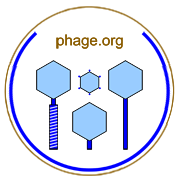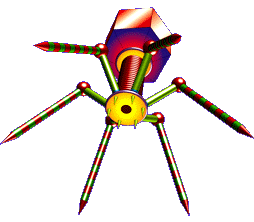

Period, phase, or time, this is the span during a phage infection starting with phage adsorption or genome translocation into the bacterial cytoplasm and ending with the maturation of the first phage particle.
Note that this definition is operational and is as observed during single-step growth experiments in which bacteria are artificially lysed to reveal their intracellular contents. It therefore is less of a direct descriptor of infection physiological processes than either adsorption or lysis. In addition, note that for chronic infections the end of the eclipse would coincide with the release of the first progeny virion rather than the detection of the first intracellular virion.
The eclipse, by necessity, ends after genome replication starts (since mature virions must possess genomes that are the product of that replication) and also ends after the beginning of the virion maturation process (since mature virions, as products of multi-step maturation processes, will appear only subsequent to the beginning virion maturation within infected bacteria). The eclipse, nonetheless, is a useful measure of how early during infections these processes begin (and, less directly, is employed to determine how fast maturation progresses once it has begun).
This is the definition from Adams (1959), p. 439, for "Eclipse period": "Elapsed time between infection or induction and the first appearance of infective phage particles in cells, as determined by artificial lysis. The eclipse period of individual cells is variable; that of the culture may be defined as the time required to produce an average of one phage per bacterium. The eclipse period is usually 1/2 to 3/4 of the minimum latent period."
See also adolescent and juvenile periods as descriptors that attempt to associate the phage eclipse with life stages of other, non-virus organisms.
For additional discussion of the eclipse, along with references, see Hyman and Abedon (2009).
For more on this topic, see Wikipedia, Google, and PubMed. Contact web master. Return to terms.